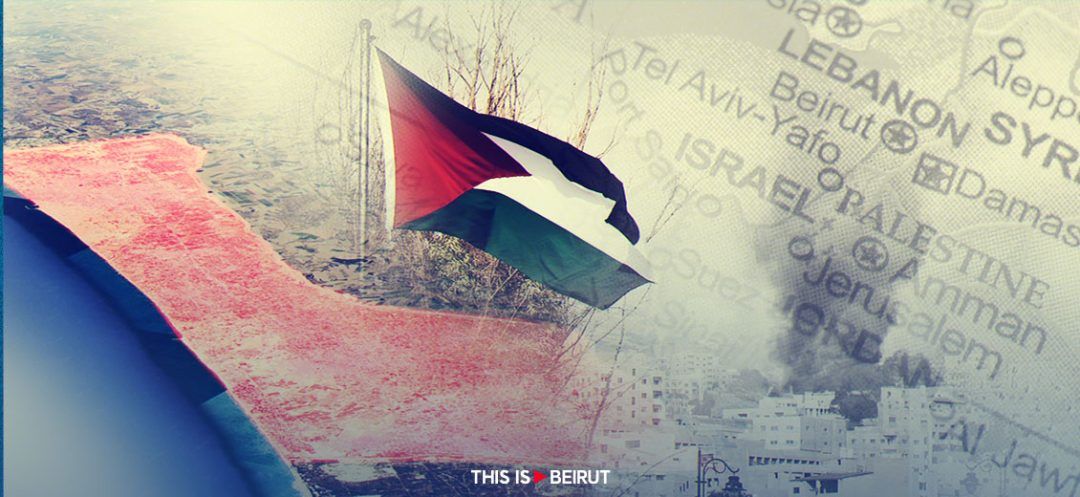- Home
- War in the Middle East
- The Intricacies of an Evolving War

The tangled nature and ramifications of the Gaza war convey the larger picture of a deadlocked region living through harrowing and open-ended conflicts. The unresolved conflicts have become hallmarks and permanent fixtures in a Middle East that failed to address its endemic instabilities, systemic entropies and inability to build working Statehood and a stable regional order.
What’s appalling is the overriding nihilistic nature of conflicts and ineptitude hindering a rational and accommodating conflict resolution. We are continuously confronted with intractability, exponentiality and morbidity. The late conflicts that succeeded the consecutive failures of the Arab Spring are still simmering, and none of the concerned countries was able to oversee working reforms and tackle the compounded issues of State failure, conflictual pluralism, civil concord and developmental agendas. The Israeli-Palestinian conflict does not depart from the outlined pattern, despite a trove of international resolutions and assistance, peace agreements and a centennial coexistence between Jews and Palestinians.
The late civil wars in Yemen, Iraq, Syria, Lebanon and the Palestinian Territories and the Israeli-Palestinian conflict are still in abeyance and are being leveraged by the clashing power politics with no end in sight. Observers puzzled by the stalemated political horizon of the late war in Gaza fail to put it into perspective with a legacy of unsettled political conflicts that characterize the volatility of a region swayed by colliding power politics. These conflicts highlight the enduring crises of national and political legitimacy, ethnopolitical and religious conflicts, democratic and civic culture deficiencies and jarring political cultures and social temporalities.
The nihilistic attacks of October 7, 2023 have set a watershed between the antecedents and the aftermath and exhibited the abysmal differences that set them apart. The intentional declaration of war by Hamas has put this conflict on a decisive course, whereby Israelis are summoned to defeat it, destroy its operational infrastructures, confront and coordinate the showdown with the Islamic regime in Iran with multiple partners. The management of the status quo has become irrelevant and counterproductive since the issues of existential and strategic security, regional stability and territorial integrity are at stake. What the Iranians succeeded in doing since October 7, 2023 is putting at stake the normalization dynamics attempted by Saudi Arabia and the United States, preempting the reactivation of the Israeli-Palestinian peace dynamics, unleashing radical political realignments and expanding the lines of the New Cold War era. This conflict dynamic is unlikely to end without major strategic permutations and new power configurations.
This conflict has been deferred by the Israelis for two decades and cannot end short of steady strategic and political containments and geopolitical amendments. Israel and moderate Arab countries are bound by identical strategic interests and cannot endorse the widening political inroads of the Iranian regime and Islamic extremism in their inner realms. The continuation of war is inevitable however disparate and sequenced its evolution might be, but both Israelis and Palestinians have to place themselves on a constructive political course of conflict resolution, containment of extremisms, open political conversation and moral reciprocity. Should the Iranian regime be co-opted in this undertaking? Why not, if it demonstrates its readiness to engage the normalization strategy and give up its subversion agenda? The Iranian regime and its vassal Alawite ally are dabbling with Sunnite Islamists, arming Syrian camps in an ultimate attempt at destabilizing Lebanon and targeting its Christian constituencies, while oppositions in Iran are strengthening their resolve and engaging in counter-terrorism as demonstrated by the recent explosion in Tehran.
The strategic alliance with the rising Cold War block and the political calculations and dividends associated with the subversion dynamics are unlikely to subside and be reevaluated unless the containment process solidifies and comes full circle. The end of war and its cascading tragedies is unfortunately a final act of war to defeat and make negotiations possible. The cynical and criminal conjectures that underlie the Hamas war scenario have turned awry, and the counter-dynamics they have elicited are wide-ranging and will end up reshuffling the strategic landscape. The capitulation scenario might be a shortcut to international mediation and a diplomatic solution that shall necessarily cap the outcomes of this conflict.
Read more



Comments